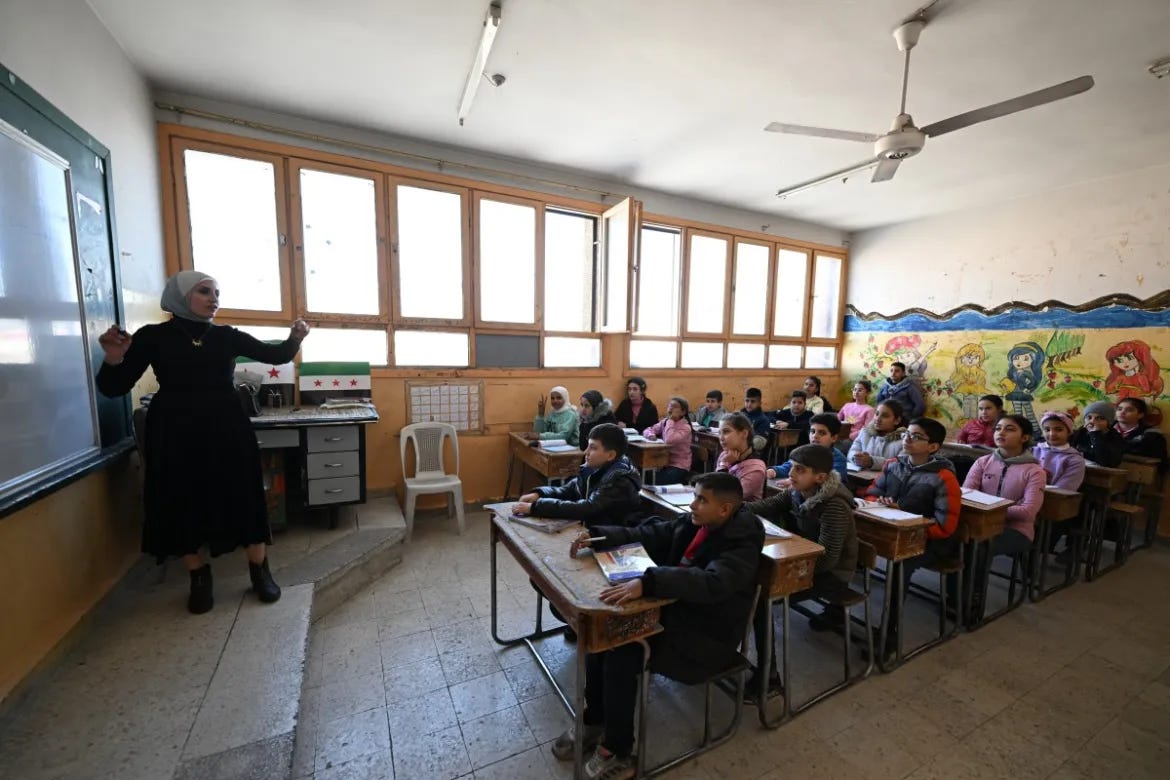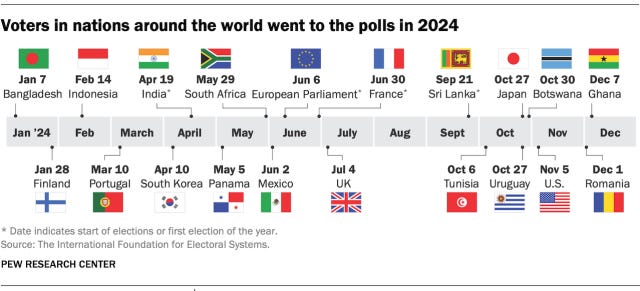This week…
Your reading time is about 8 minutes. Let’s start.

Is archiving creating clutter and redundancies? I have read from several Substackers recently about being banned with little explanation (for “spamming” despite posting at most two or three times a week) and losing access to their work as a result.
Sometimes, such as when I write about a touchy subject, or I mention someone like Munira Mustaffa, whose work The Deep Dive is worth subscribing to, I will get an influx of new subscribers with throwaway email addresses who will spam with nasty vitriol in the comment section (Substack does not allow comments without registering for an account).
I worry that these large bulk sign-ups and subsequent inactivity/delivery failures would make it look to Substack that I am padding my subscription data and whether I am on a naughty list and one strike away from being banned as well. I try to remove them as soon as they come in, but I am still not sure if it’s enough. The more I hear about those stories, the more I feel my newsletter fits the profile of being banned for no appropriate reason. I might copy some of my work to a LinkedIn platform as an archive. I have not written a lot of original pieces so it might not be quite slog.
That’s my year-end plan, besides completing my assignment for law school about AI and the future of human rights...
Your Wikipedia this week: Widows and orphans
And now, a selection of top stories on my radar, a few personal recommendations, and the chart of the week.
ICYMI: The Previous Block was about democracy democracy across Europe and Asia—whatever that meant. FWIW:
South Korea’s parliament votes to impeach President Yoon Suk Yeol over his martial law order by Hyung-Jin Kim and Kim Tong-Hyung for AP.
TikTok influencers flee Romania amid tax probe into their election role by Andrei Popoviciu for Politico.eu.
CORRECTION NOTICE: None notified.ON THE (SOCIAL) MEDIA
How WhatsApp ate the world
Issie Lapowsky for Rest of World:
WhatsApp is the world’s most widely used messaging app; the company says it has 2 billion daily users. These users send more than 100 billion messages every day in 60 languages across 180 countries. Some 400 million of those users are in India, WhatsApp’s biggest market, followed by another 120 million in Brazil.
WhatsApp initially achieved that global dominance in large part by doing just one thing very well: enabling cheap, private, and reliable messaging on almost any phone, almost anywhere in the world. But in the decade since Meta acquired WhatsApp for an eye-watering $22 billion in 2014, the app has been transformed from a narrowly focused utilitarian tool into a sort of “everything app.” In countries like India, Brazil, Mexico, and Indonesia, WhatsApp is now also a place for scheduling doctor’s appointments and conducting real estate deals—and buying Sabharwal’s ceramic ducks. In Brazil, the beauty juggernaut L’Oréal now makes an average of 25% of its online direct-to-consumer sales on WhatsApp.
Loosely linked:
Movie stars, matchmakers, and aunties: How WhatsApp became an unstoppable cultural force by Sonia Faleiro for Rest of World.
Acquisition of Brazilian legislative watchdog Congresso em Foco may signal online media consolidation by Júlio Lubianco and Pollyanna Brêtas for LJR.
Malaysia tightens grip on internet, in blow to online freedom by Tashny Sukumaran for Rest of World.
Moderators received 7 cents per task to comb through violence, pornography, and extreme content on X by Tatiana Dias and Sofia Schurig for The Intercept Brasil via Pulitzer Center.
Netanyahu wants to boycott Haaretz. We won’t back down by Aluf Benn for CJR.
It’s a power play: Google’s test to remove EU-based news content raises concerns by Romain Chauvet for The Fix.
How StumbleUpon pioneered the way we use the internet by Kari Paul for BBC.
ON AI
Who owns the AI tools journalists use? A new study exposes a dangerous transparency gap
Laura Oliver for Reuters Institute:
More than two-thirds of 100 companies behind the AI tools most commonly used and recommended by journalists are insufficiently transparent about their ownership, finances and other critical data, according to a new report published by the Media and Journalism Research Center.
The study explores the private ownership of AI tools regularly used by journalists for fact-checking, content generation and news-gathering and the influence that ownership may have on how they work. This piece of research suggests that full financial transparency was particularly scarce: just 24 of the 100 companies covered shared information about their revenues and only 43 made available their total funding.
“In order to maintain the integrity of journalism in the age of AI, it is essential to understand who has a stake in these AI tool companies and how AI is being used by the media. This will ensure the protection of consumers, democracy, and truth,” says the report’s executive summary.
The report by Sydney Martin studied 100 AI tools used by newsrooms around the world, from Dataminr and Notion to Grammarly and Jaspar AI. Loosely linked:
Who’s suing AI and who’s signing: Publisher deals vs lawsuits with generative AI companies by Charlotte Tobitt for Press Gazette.
BBC complains to Apple over misleading shooting headline generated by AI feature by Graham Fraser for BBC.
We looked at 78 election deepfakes. Political misinformation is not an AI problem by Sayash Kapoor and Arvind Narayanan for AI Snake Oil.
Local governments are using AI without clear rules or policies, and the public has no idea by Tan Yigitcanlar (Queensland University of Technology), Juan Manuel Corchado Rodriguez (Universidad de Salamanca), Karen Mossberger (Arizona State University), Pauline Hope Cheong (Arizona State University), and Rita Yi Man Li (Hong Kong Shue Yan University) for The Conversation.
Global South countries have no choice but to care about advanced AI by Cecil Abungu, Marie Victoire Iradukunda, Raqda Sayidali, Aquila Hassan, and Duncan Cass-Beggs for CIGI.
In Thailand, AI is a tool for surveillance and stifling dissent by Jean Linis-Dinco for Context.
Former OpenAI researcher Suchir Balaji and whistleblower found dead at age 26 by Lora Kolodny for CNBC.
Losing our voice? Fears AI tone-shifting tech could flatten communication by Robert Booth for The Guardian.
ON SCIENCE
Scientists call for halt on ‘mirror life’ microbe research
Ian Sample for The Guardian:
…Mirror bacteria, constructed from mirror images of molecules found in nature, could become established in the environment and slip past the immune defences of natural organisms, putting humans, animals and plants at risk of lethal infections.
Although a viable mirror microbe would probably take at least a decade to build, a new risk assessment raised such serious concerns about the organisms that the 38-strong group urged scientists to stop work towards the goal and asked funders to make clear they will no longer support the research.
“The threat we’re talking about is unprecedented,” said Prof Vaughn Cooper, an evolutionary biologist at the University of Pittsburgh. “Mirror bacteria would likely evade many human, animal and plant immune system responses and in each case would cause lethal infections that would spread without check.”
Mirror molecules have fascinating potential applications including being turned into therapies for chronic and hard-to-treat diseases, while mirror microbes could make bioproduction facilities, which use bugs to churn out chemicals, more resistant to contamination. Loosely linked:
Why ‘digital twins’ could speed up drug discovery by MaryLou Costa for BBC.
Designer babies running into trouble now that they are teenagers by Frank Landymore for Futurism.
There will be nothing left: researchers fear collapse of science in Argentina by Martín De Ambrosio and Fermín Koop for Nature.
Getting paid to review is justice: ResearchHub Journal pays peer reviewers in cryptocurrency by Holly Else for Nature.
Other curious links, including en español et français
LONG READ | A school that was a ray of light in apartheid South Africa by David Dyzenhaus for Aeon.
INFOGRAPHIC | Colombian mercenaries in transit to Sudan via Libya: What do we know? by Carlos Gonzales for Bellingcat.
PHOTO ESSAY | Quannah ChasingHorse: The Indigenous American supermodel on bringing change by Faran Krentcil for BBC.
Neurotecnología: el cerebro, la última frontera por Fernando Maldonado en Retina.
El bucle sin fin: por qué pasamos en el móvil más tiempo del que queremos por Ana Bulnes en El País.
¿Sirve la IA para identificar a las personas por sus andares? Un experimento revive la controversia por Manuel G. Pascual en El País.
« Loi Airbnb » : Québec lancera son répertoire public lundi par Jérôme Labbé dans Radio-Canada.
Un documentaire sur l’armée russe financé à même les fonds publics canadiens par Cédric Lizotte dans Radio-Canada.
Les mèmes, des images humoristiques de plus en plus populaires pour s’informer par Jean-François Gérard dans Radio-Canada.
What I read, listen, and watch
I’m reading The Other Olympians: Fascism, Queerness, and the Making of Modern Sports (2024) by Michael Waters. The queue for this book was a very long one; I believe I was kept on hold since the summer games this year, which felt like a very long time ago.
I’m listening to Decoder with Nilay Patel who spoke with media critic and labour union president Matt Pearce about how platforms need the news but are killing it.
I’m watching how big AI companies exploit data workers in Kenya by DW..
Chart of the week
Pew Research Center’s Richard Wike, Moira Fagan and Laura Clancy wrote an essay on the elections held in more than 60 countries this year, listing four major themes including a tough year for incumbents and the staying power of right-wing populism.






